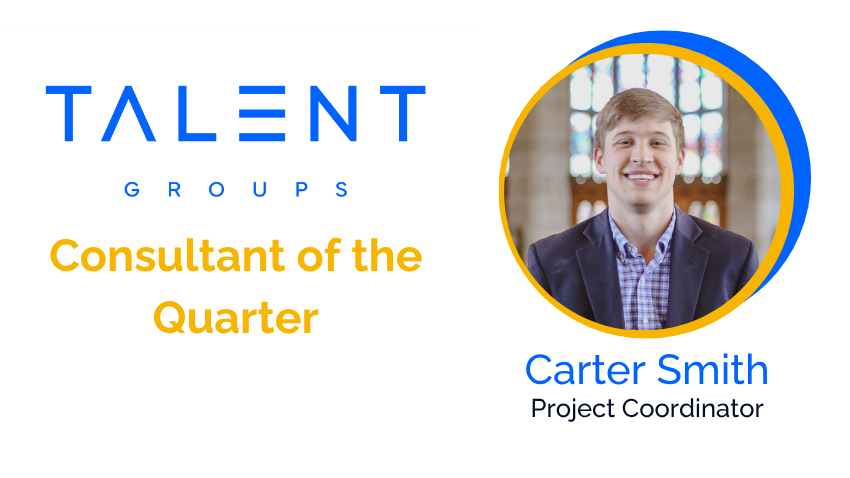“Check, Please”: Your Guide to Getting Great Reference Checks

While many job seekers view reference checks as an afterthought, these lookbacks into your work history can be the secret sauce that separates you from the competition and lands you the position you want. The key to getting a great reference is to first understand how important reference checks are to a hiring manager, to select the right contacts, and to lay the groundwork for a positive reference.
“A great reference check can nail a job offer,” explains Matthew Poplawski, Manager of Strategy & Development at Queen Consulting Group. “Your hiring manager will need to confirm your title and duties, of course, but will also try to get a good feel for how you operate as part of a team. That glimpse into your past is why the reference check is so important to your potential employer.”
“What you want out of a reference check is for your potential employer to learn about your personality, work ethic and skills; about results you achieved on specific projects; about your strengths, weaknesses and interpersonal skills; about how you handle challenges and conflicts; and about how you work with your peers, upper management and business partners.”
Who Makes a Good Reference?
Employers will typically ask for at least one and up to four references, according to Matthew. “When Queen does our own reference checks, we ask for two supervisors or managers and optionally, one peer.”
At a minimum, you should be prepared to offer at least these individuals as your references:
- Two direct supervisors, ideally the most recent
- A non-direct supervisor, for instance a manager or someone you reported to on a project team (may be optional)
- A peer (may be optional)
Even if not specifically requested, always have a direct supervisor as a reference if possible. Your references should be from your most recent position, especially your direct supervisor. As Matthew says, “More recent equals more relevant, so prioritize your most recent position.”
Ask yourself, “Who can best speak about me, my skills, and my experience?” For each specific position you’re applying for, consider your most relevant experiences, and decide which individuals can best discuss you accurately and positively.
How to Prepare for a Great Reference
Preparation begins when you leave your previous job. You should have a clear idea of who can give the best overview of your skills, temperament, and accomplishments. Ask your direct supervisor, other manager or supervisor, and perhaps a peer if they are willing to be a reference in the future.
Once you have left a position, make a point of keeping a moderate level of contact with each of these individuals, especially your most recent supervisor. An occasional comment or message on LinkedIn, for example, is an easy and appropriate way to maintain the relationship.
Specific Steps to Getting a Positive Reference
Here’s how to ask someone to be a reference and prepare them to provide a positive and accurate account. Your job now is to make it as easy as possible for the reference to help you shine.
- Call or email the person to ask if they are willing to be a reference for the specific job before you provide their information. You don’t want them to be caught off guard by getting contacted without any advanced notice.
- Be warm and polite. Ask if they’re willing to serve as a reference. If they are unable or unwilling to serve as a reference, thank them politely and move on.
- Give a brief description of the position you are applying to. This will help them speak to the skills and qualities the potential employer will be looking for. If the reference wants to know more, share additional details about the new role and ask if they would like to see the job description.
- Explain what the reference check will entail: a form to fill out or a phone conversation? If a call, make it easy for your reference by asking them for the best phone number and time for the hiring manager to contact them. If there is a deadline to get the reference in, be sure the person you are requesting the reference from is aware and able to meet the timeline.
- Refresh the reference’s memory about your time together, including the dates of your employment, your title and applicable projects and results.
- Ask the reference their current information. Be prepared with their name, title, organization, phone number, email to provide to the recruiter or hiring manager.
- Follow up to thank them for their support. Once the reference check is completed, be sure to call, email or send a note of thanks. Offer to reciprocate if they ever need a reference in the future.
What to Avoid
While providing references may seem straightforward, be careful to avoid these errors.
- Providing old references. Ideally, you’ll be able to offer up your two most recent supervisors, as well as other individuals you recently worked with.
- Not listing a direct supervisor. Don’t substitute a project or team lead for a direct supervisor. If you are unable to provide a recent direct supervisor, be honest about it, explain why and offer alternative references.
- Taking too much time to come up with references. Not having references readily available can look like a red flag to a hiring manager, who may question your preparation and thoroughness.
- Taking too much time to come up with references. Not having references readily available can look like a red flag to a hiring manager, who may question your preparation and thoroughness.
- Not listing accurate title and duties for a previous position. Your credibility will be doubted if a hiring manager learns from a reference that you have misrepresented yourself.
- Not knowing if a reference can only confirm employment. This is also something you should know about and prepare the hiring manager for. If possible, offer another reference who can speak more extensively about you.
References Are Invaluable
Ultimately, providing solid references is a reflection of how you approach work. It’s an opportunity to demonstrate that you are organized and professional and that you’re a great team player ready to nail the next assignment.
As Matthew says, “Use common sense and think about what you would want to hear if you were the potential employer. You know best who can speak to your strengths. Good references are invaluable, so provide your hiring manager with people who are able, willing, and ready to provide a positive reference.”
Share:




